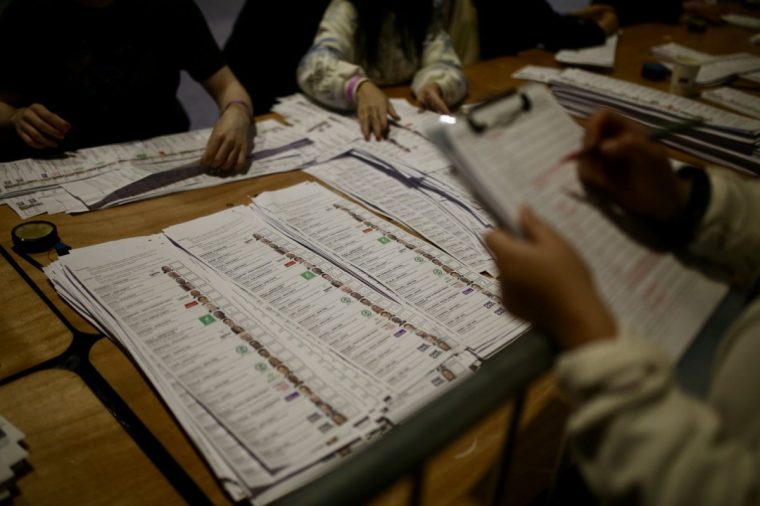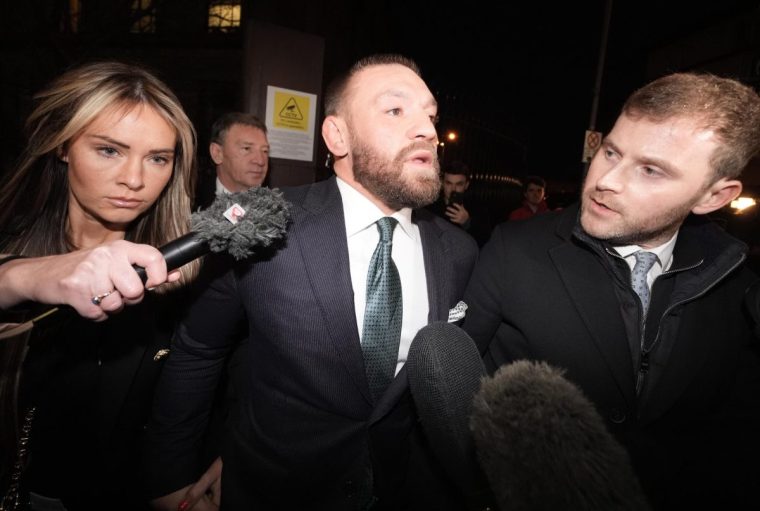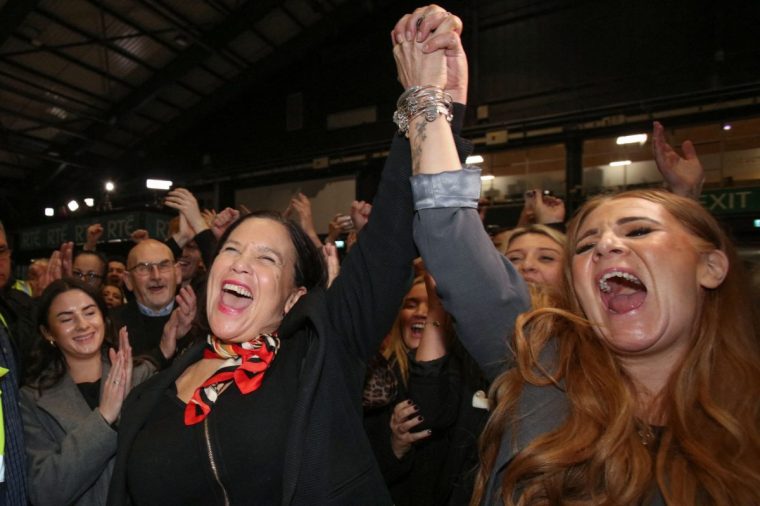In normal times, rejecting far-right racism and declining to elect a notorious gangland boss to public office are low bars to clear. But given events in the US and elsewhere in Europe, the Irish electorate deserve credit for clearing them.
As things stand, with a few seats left to be called, it looks highly likely that Ireland will return another centrist government bringing together the big two parties, Fianna Fáil and Fine Gael. They will likely be joined by a smaller soft-left party and/or a cluster or independents, many of whom come from the same “gene pool” – meaning they were once members of one of the big two, and are thus highly unlikely to act as agents of chaos.
Still, Ireland’s general election isn’t just about maintaining the status quo. As the republic painstakingly tallies votes cast on Friday, it has bucked the disturbing trends sweeping the democratic world.

Ireland has in recent years become home to an openly racist anti-immigration movement, small by some countries’ standards but nonetheless both loud and vicious. Initially cloaked in concerns about the housing crisis and inequality, its de facto leaders have gone on to embrace full-blown ethnonationalism. Yet with the results still coming in, there is absolutely no sign of its online organisers managing to establish any meaningful foothold in electoral politics.
Never mind winning a seat, the handful of parties whose ideas about cultural cleansing would give Marine Le Pen pause have not mustered enough votes to climb out of the mortifying “other” box in TV graphics summing up the share of first preference votes.

It probably didn’t help that one of the movement’s only famous ambassadors, MMA fighter Conor McGregor, has just been found civilly liable for a brutal rape. However, this alone doesn’t explain why anti-immigrant parties failed to gain traction in the first election since immigration and refugee housing became a major issue.
Set this against Donald Trump’s promise of “mass deportation now!” and the spectacle of deeply nasty characters making headway in Romania, the Netherlands, Finland, Austria and beyond, and it all feels like cause for relief. Then again, it’s doubtful that the people who’ve been stirring up post-Southport-style attacks on housing for asylum seekers are actually invested in winning elections at all.
In every country where they peddle this stuff, these people’s first and most effective weapon is a terminal cynicism about the system’s ability to provide change. When the electorate don’t honour their supporters’ violent rage, it just provides further “proof” that they are being done a deep injustice.
More significant, however, is the small but meaningful fissure the far right has opened in Irish nationalism. The rise of a conspicuous racist nationalism—trafficking in the idea that white, Gaelic Irishness must be defended from a “globalist melting pot” by a violent working class—may have stalled Sinn Féin’s momentum, who at the last election won the highest national share of first preference votes.
In 2020, Sinn Féin achieved the highest national share of first preference votes, but its share has now dropped by 4.5 points.
After disappointing results in this summer’s local and European elections, Sinn Féin acknowledged failing to address anti-immigration anger in some strongholds. Its leadership has since tried to balance progressive internationalism with appeals to its traditional base, but this strategy seems ineffective.
The result raises an awkward question for the party: what, exactly, are the circumstances that would yield a Sinn Féin-led government in Dublin? After all, the party has risen to stunning new heights in Belfast lately. Why not south of the border as well?
The answer is that unlike in most of Western Europe, the status quo suits Ireland’s electorate well enough that there’s little need to rock the boat. Yes, there’s a chronic housing crisis, various public services need overhauling and the cost of living is high. But Ireland also has two things that many countries don’t: one, ready cash; and two, a broad near-consensus about what to try and achieve with it.
With the republic’s foreign investment-dependent economy extremely exposed to global shocks, particularly any emanating from the US and EU, there is an urgent imperative to spend smartly and save for the worst while the money is still flowing.
Exit polls show that nearly two-thirds of voters feel their standard of living has remained stable or improved in the past year. Two centrist parties are well-positioned to debate the finer details of using public funds to improve Ireland’s lot without radical change.

The advent of yet another centrist government, whatever its precise make-up, may help cement the republic’s reputation as a country that knows better than to lose the run of itself. So will one of the election’s best on-the-ground stories, in which convicted gangster Gerry Hutch failed to get elected in Dublin Central.
Hutch, known as “The Monk” for his relatively austere lifestyle, is one of the best-known names in Ireland’s increasingly notorious organised crime scene. The country is a major waypoint on drug-smuggling routes into Europe, and certain of its leading criminal families are wanted worldwide for their highly violent and extremely lucrative illicit dealings. Hutch showed up to the count on Sunday afternoon, but despite winning thousands of votes, he ultimately came fifth in the four-seat constituency.

Sinn Féin leader Mary Lou McDonald, who topped the polls in Dublin Central, avoided the awkwardness of sharing a constituency with Hutch. Still, Sinn Féin’s decline from first to third place, along with a slight drop in turnout, highlights voters’ preference for moderation. The far right and the Greens were the biggest losers of the election, leaving Ireland reassuringly boring in a time of global turbulence.


